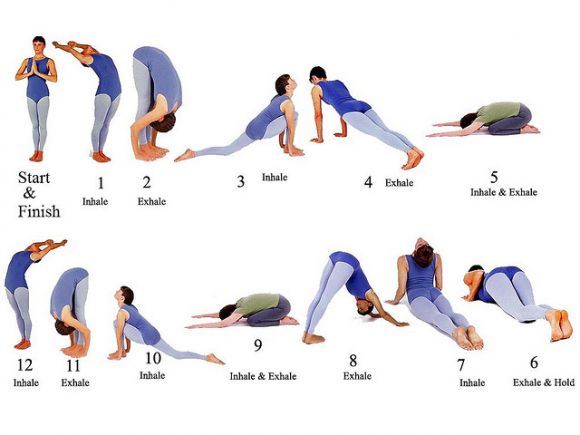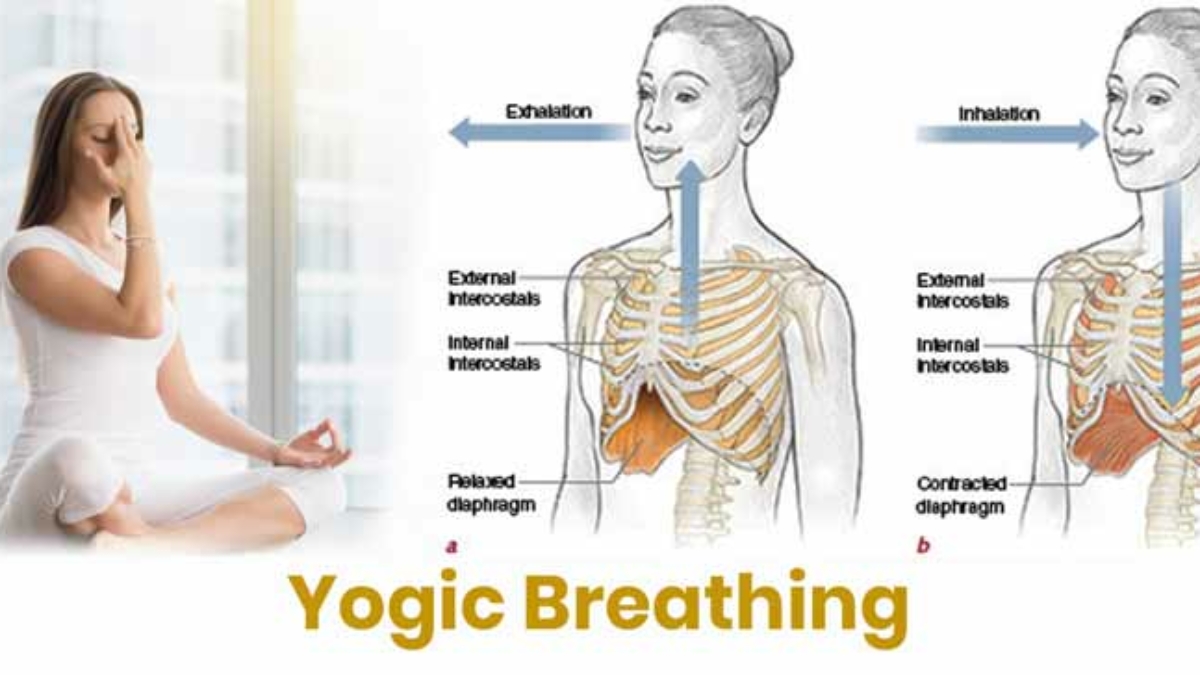
The Yoga Sutras of Patajali are a collection of 195 and 196 Sanskrit sutras. The text was composed in the early centuries CE by the sage, or yogi, named after him. He collected the various teachings from yoga from earlier traditions and put them together into a coherent set. The Patajali Yoga Sutras are essential for the practitioner of yoga.
Many translations of the Yoga Sutras are available. Some translations include commentary from Swami Vivekananda as well as Sri K. Pattabhi Jois. An English translation of the text is popular, but many yogic researchers argue that it would be difficult to convey the full meaning. The sutras explain the path to moksha, which is enlightenment through union of the mind and body.

The Theosophical Society published the first English translation of the Patanjali Yoga Sutras on 1885. These translations made ancient Indian wisdom more accessible to a wider audience. The texts are still heavily dependent on later commentators, which makes them incomprehensible in places. This is no reason to ignore them, they still have value today. And they will improve your yoga practice.
The yoga sutras are important for aspiring yogis and those who have been practicing for a while. The PDF version can be downloaded for free. Have fun reading!
The Yoga Sutras and Meanings of Patanjali's Patanjali Yoga - Why They Matter in Your Spiritual Practice
The Sutras can be divided into four limbs. The first two are primarily related to moral and observances and the third to asana. Asana, the most important limb in the yoga path and an integral part of the practice, is the most important. Asana, the only limb of the sutras that refers directly to yoga, is asana. Asana, in other words, is a stable and easy position.

The Yoga Sutras offer great inspiration. They help us to live a happy and fulfilled life by letting our worries go. If you don't feel at peace with your life, find a place that allows you to relax and meditate. This will help to make you the best version of your self. If you don't like the thought of pain, try a different approach. You will be more successful if you put in the work and stick to a schedule.
Yoga Sutras are an essential resource for all those who are interested in yoga. While it may seem overwhelming to read a book, the intent is to be transformed into a living reality. The Patanjali Yoga Sutras consist of three main parts. It is the basis for practicing yoga. The introduction of the sutras is the second section of the introductory section.
FAQ
What does butter do?
Butter is one source of saturated fats. This type of fat contributes to healthy skin, hair, and stronger bones.
Butter also contains vitamin K, which prevents bleeding from cuts and bruises. Vitamin K works with vitamin A to prevent bleeding.
Butter is rich in minerals such as calcium, potassium, and phosphorous. These elements encourage stronger bones.
Butter has its drawbacks. Butter is high in cholesterol. Some studies show that consuming too much cholesterol may increase the risk of developing cardiovascular disease.
Butter also contains high amounts of saturated fat, which contributes to obesity and increases cholesterol.
Butter can be spread on bread, but you don't have to dip it into soups or salads if you absolutely must. Bread absorbs less oil than pasta and potatoes.
Is Cardio Better Than Strength Training?
Both are equally effective. For those who want to gain muscle quicker, cardio is a better choice.
Cardio burns more calories per minute than strength training and burns more fat.
Strength training builds muscle mass, but it takes longer to achieve this goal than cardio.
How to Build Muscles Fast
Eating healthy foods and lifting weights regularly is the best way to build muscle fast.
The best time to work out is early morning when you are fresh and ready for action!
Try exercises like squats and bench presses.
Try different weight training routines, and don't forget to drink plenty of water throughout the day.
How many calories do I need to eat each day?
This can vary from person to person. On average, you need 2000 to 2500 calories per days. Based on your age, gender, height and activity level, you will need to calculate how many calories you require.
Statistics
- 10 pounds in a month is likely during a lean bulking phase, especially for beginners. (muscleandstrength.com)
- Get free shipping and 25% off today. (healthline.com)
- Are You One of the 20% of Guys (mh.co.za)
- By John Thompson Take a whopping 38% off a set of PowerBlock Pros. (menshealth.com)
- An estimated calorie range for moderately active adult males falls between 2,200 to 2,800 calories per day, depending on age. (eatright.org)
External Links
How To
How can I exercise to burn fat?
Exercise burns calories through increased metabolism and oxygen consumption.
If you exercise with moderate intensity, you can safely lose weight.
These tips will help you burn fat and keep fit while exercising.
-
Do cardio exercises such as walking, swimming, jogging, cycling, running, or elliptical training.
-
Exercise for 30 minutes three times per week.
-
Add strength training to your workouts if you are looking to lose more weight.
-
Avoid intense workouts. You can build muscle without having to lose muscle tissue.
-
When exercising, make sure to drink lots of water. Water helps to flush out toxins from the body and maintains proper hydration.
-
After exercising, consume low-fat protein smoothies. Protein shakes boost energy and repair muscle tissue.
-
Take smaller meals throughout each day to avoid feeling hungry.
-
Don't skip breakfast! You can feel tired and slow if you skip breakfast.
-
Mental health is important. Stressful situations can slow down metabolism.
-
Keep a positive attitude. Research shows that overweight people gain more weight if they believe they are overweight than those who believe they look good.
-
Get enough sleep. A lack of sleep makes it difficult to lose fat.
-
Active living is key. Get up every hour and get moving.
-
Maintain a healthy diet. A healthy diet will help you feel fuller for longer.
-
Find relaxation techniques. Your body won't release stress hormones that cause muscle tissue destruction if you have a tense mind.
A balanced diet will provide all nutrients that are necessary for growth.
Six small meals per day is better than three large meals. This gives your body the time it needs to process what you've eat.
For strong bones to be maintained, you need approximately 500mg of calcium per day. Calcium can also be found in milk products, yogurt, fortified Soy beverages, orange Juice, cereals and bread.
Calcium is found in green leafy vegetables, beans, tofu, seeds, nuts, and cheese.
Your body needs vitamin D to absorb calcium. Vitamin D can be found in egg yolk, fatty fish, and other fortified foods.
Vitamin E is important for skin health. It can be found as a vegetable oil, wheat germ, peanuts or almonds.
Your body needs zinc for normal immunity function and wound healing. Zinc is found in oysters, legumes, meats, whole grains, and seafood.
Zinc deficiency could cause fatigue, nausea, vomiting, and depression.
Too much sugar leads to insulin resistance. This results in higher blood glucose levels. Insulin resistance leads directly to weight gain.
When there is a high level of free radicals, insulin resistance can develop. Free radicals are molecules that have unpaired electrons, which can cause damage to cell membranes or other parts of your body.
The main sources of free radicals are food additives.
Free radical damage can lead cancer, heart disease or diabetes, arthritis, asthma, or other forms of aging.
A well-balanced diet rich in antioxidants is the best way for you to avoid free radical damage. Antioxidants protect against oxidative damage.
Vitamin C, beta carotene (found within citrus fruits, carrots, sweet potatoes and spinach), Vitamin E (found inside nuts, olive oils, avocados and eggs), and Vitamin C (found among mangoes.
Other antioxidant nutrients include selenium, copper, manganese, and zinc.
Selenium helps protect cells from oxidative damage caused by free radicals. Selenium can also be found in Brazil nuts (tuna), liver, kidneys and shrimp.
Copper protects the brain, eyes, lungs, and red blood cells. Copper can be found in meat, shellfish, meat, and organ meats.
Manganese plays an important role in bone structure. Manganese can be found in brown rice and spinach as well as bananas, prunes raisins, oatmeal, lentils, and oatmeal.
Zinc is required for normal growth, reproduction and wound healing. Zn can be found in lean cuts, white fish, poultry, eggs, and other foods.